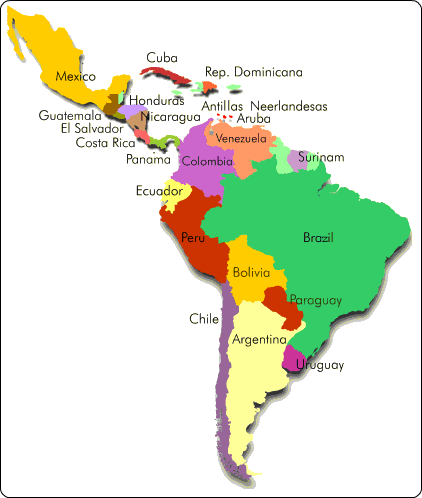
Regional Multilateral Initiatives
Click on the circles and show the initiatives

SICA
SICA
Central American
Integration System

-
Background
In 1991 the Protocol of Tegucigalpa was signed, which led to the formation of the Central American Integration System, replacing the former Organization of Central American States (ODECA).
Four years later, in 1995, the Framework Treaty on Democratic Security in Central America was signed as a complementary tool to the Tegucigalpa Protocol. The Treaty gave rise to the democratic security model and instituted the Central American Security Commission as a subsidiary body subordinate to the Meeting of Presidents and the Council of Ministers of Foreign Affairs.
-
Members
Member states: Belize, Costa Rica, El Salvador, Guatemala, Honduras, Nicaragua, and Panama.
Dominican Republic is an associate member.
Regional Observers: Argentina, Brazil, Chile, Colombia, Ecuador, Mexico, Peru, Uruguay and the United States.
Extra-regional Observers: Australia, China (Taiwan), European Union, France, Germany, Italy, Japan, Spain, South Korea, The Holy See, the United Kingdom
-
Bodies
SICA’s bodies include a Central American Parliament, Consultative Committee, Executive Committee, Central American Court of Justice, and the Secretary General.
Within the field of security and policing, one can highlight:
Central American Security Commission
This Commission is responsible for the implementation, evaluation and monitoring of proposals, agreements and resolutions in all matters relating to regional and international security. It is formed by the vice ministers of Foreign Affairs, Public Security and/or Interior, as well as National Defense of each country.
Commission of Police Chiefs of Central America, Mexico and the Caribbean
The commission was formed in July 1992 under the name of the “Association of Police Chiefs of Central America”. In 2007, the Commission was formed in its current form, integrated by 13 police forces from 12 countries and 8 observers. The Presidency rotates between member States. Its objective is to reduce crime and violence in the region, and as part of this they meet to coordinate regional security operations

-
Central American Security Strategy
Following the development of the 2007 strategy, in 2011 a new Strategy was launched with the following components:


CARSI
CARSI
Central American Regional Security Initiative

-
Overview
Born in 2008 as part of the Merida Initiative (which sought to combat drug trafficking and organized crime in Mexico), CARSI is a cooperative regional security program that finances programs ranging from technical assistance and training, strengthening institutional capabilities and effective State presence, to preventive programs that employ educational and alternative opportunities to address underlying causes of crime and violence. In 2010, it became an independent program, albeit implemented in coordination and as a complement to other security initiatives in the wider region, including the Merida Initiative, Caribbean Basin Security Initiative (CBSI) and Colombia Strategic Development Initiative. It is one of the primary instances of cooperation between the United States and Central America in the area of security and defence
-
Main Objectives
1. Create safe streets for the citizens of the region;
2. Disrupt the movement of criminals and contraband to, within, and between countries.
3. Support the development of government capabilities.
4. Re-establish effective state presence, services and security in communities at risk.
5. Foster enhanced levels of coordination and cooperation between the nations of the region, and the international community.

-
CARSI Funding

International Law Enforcement Academy:
El Salvador

International Law Enforcement Academy:
El Salvador
Overview
As part of a global network of 5 ILEAs, the International Law Enforcement Academy El Salvador covers Latin America and the Caribbean. Created in 2005 it is a joint entity of El Salvador and the United States of America, its principal aim is to increase regional law enforcement capacities through the provision of training.
Participating Countries
Antigua and Barbuda, Argentina, Bahamas, Barbados, Belize, Brazil, Chile, Colombia, Costa Rica, Dominica, Dominican Republic, Ecuador, El Salvador, Grenada, Guatemala, Guyana, Honduras, Jamaica, Mexico, Nicaragua, Panama, Paraguay, Peru, Saint Kitts and Nevis, Saint Vincent and the Grenadines, Saint Lucia, Suriname, Trinidad and Tobago and Uruguay.
Training



2016 / RESDAL / Latin American Security and Defense Network /
Contact:
secretaria@resdal.org
RESDAL
Website












